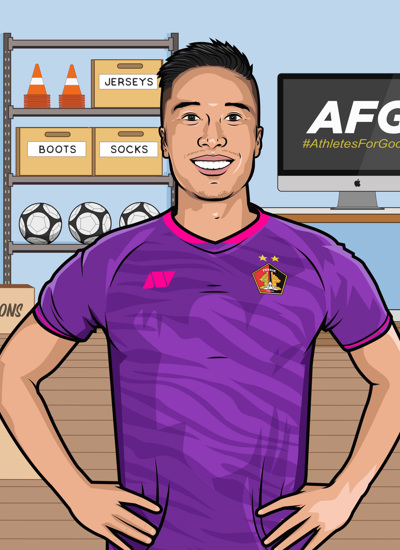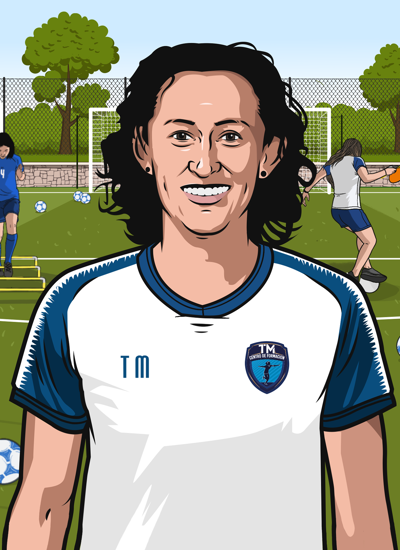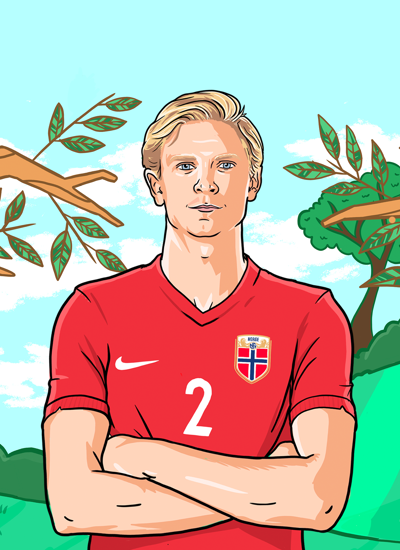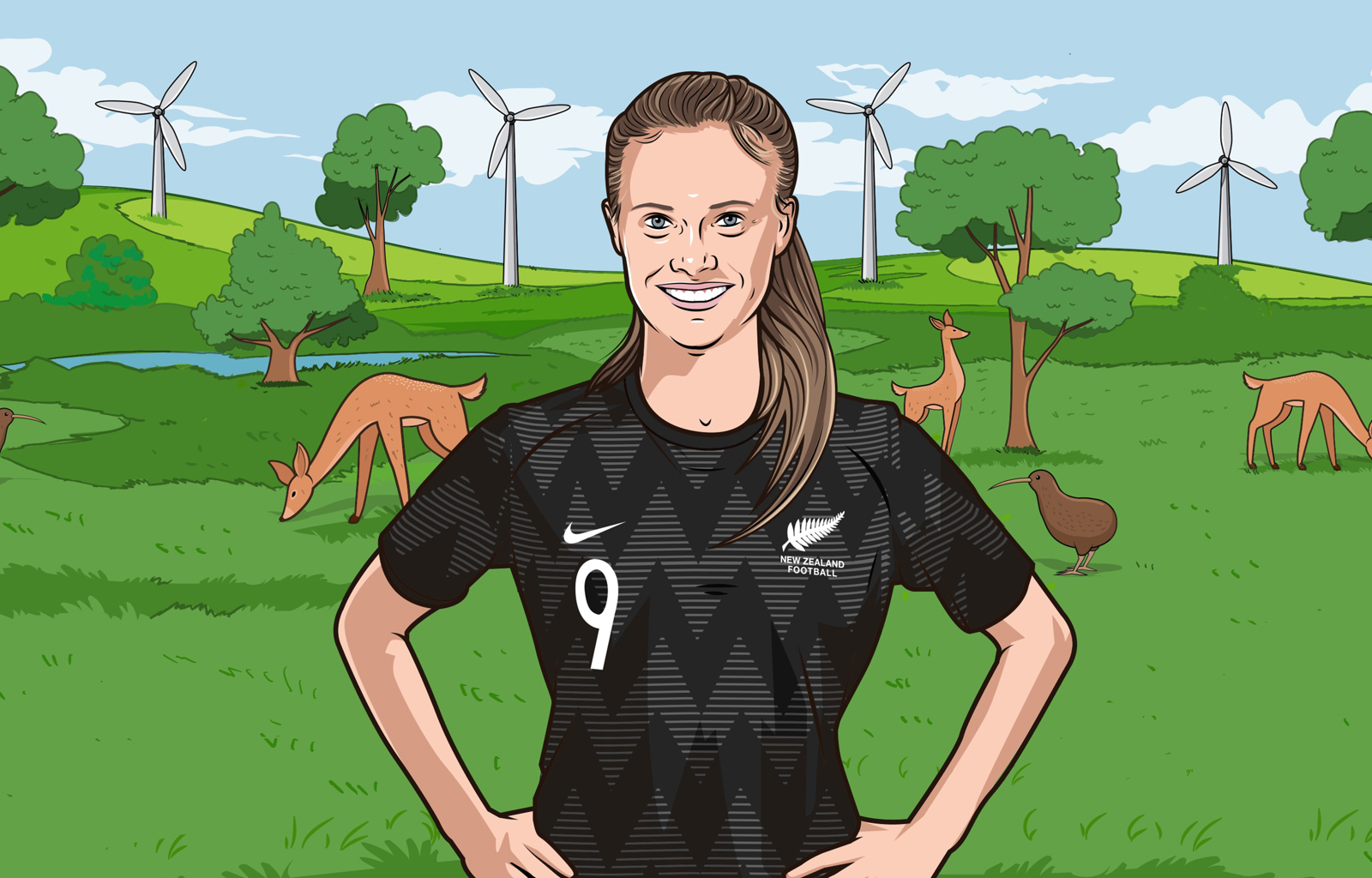
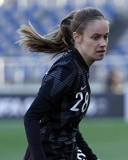
About
Katie Rood
New Zealand international Katie Rood adopts a vegan lifestyle and, in an effort to combat the effects of global warming, is trying to use her platform to encourage others to take an active interest in the environment.
I’ve always felt connected to nature. Growing up in New Zealand, I remember playing football on Sundays and then racing west to find a good view of the sun setting over the ocean. It was a time that I could just be at peace with myself, and think, and be in awe of the world around me.
I knew that I wanted to be an athlete from a really young age. I also wanted to travel the world, to see more of it. Football gave me an opportunity to do both. However, as my travels began, I quickly realised that the world that I was seeing wasn’t what I thought it was going to be. I realised how lucky I was to have the opportunity to go to so many amazing places, but with that came a unique perspective. That’s when I realised there was a responsibility for me to use my platform for good in the world.
I started leading a vegan lifestyle seven years ago. I like the idea of being a peaceful person and I think that starts on my plate. There were also environmental reasons – and after just a few weeks, I also noticed positive effects on both my wellbeing and performance.
At the start, I felt so good that I thought everyone should cut out all meat and dairy, and that vegan living was the only way forward. As much as I still strongly believe in its benefits for our health and the environment – and, of course, animals, too – I realise now that it isn’t possible for everyone to go all-in on veganism, and nor should they have to.
Today, I want to encourage everyone to be more conscious of the impact that each of their decisions have on the planet. For some people, this might be cutting out animal products entirely. But for others, maybe this is just consuming less – and being mindful of the health and environmental costs that are involved.
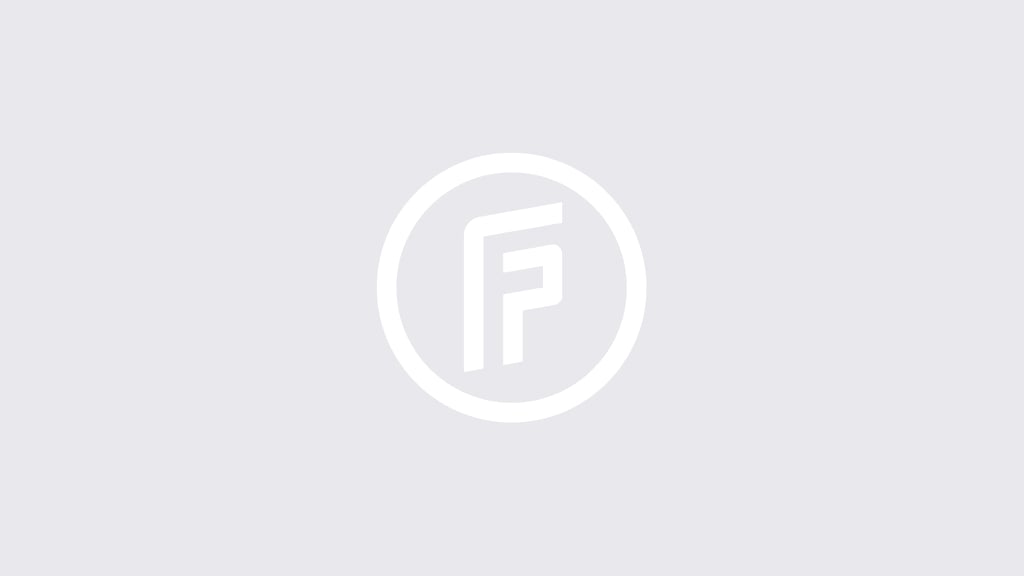
There were times when I was travelling and I would end up going hungry because I couldn’t bring myself to buy a sandwich wrapped in plastic, as it felt like an unnecessary waste. I eventually realised that this level of strictness was bringing more challenges than rewards, and that this is not a battle that can be won by a single individual. The best way to make a real positive impact is systematic change, and that needs to be a team effort.
In this economic system we live in, every dollar is key. Where we spend our hard-earned cash will incentivise change. What if we all aimed to spend our money with organisations who genuinely have the environment at the heart of what they do?
From buying organic food to football kits made from recycled ocean waste, there are so many brilliant technologies and initiatives out there that we could support to help shape a better world. It’s about every person being accountable for their own choices; for me that starts with a vegan lifestyle and filters into most of my decisions. For someone else, it’s perhaps just being aware of the various stages of impact that, say, a beef burger, that takes five minutes to eat, has on the world around us – and consider the veg option from time to time.
I am not perfect. The carbon footprint required to play football across the world isn’t small, but this is my life – and I’ll keep trying to do the best I can to limit my impact. The world doesn’t need a million perfect people. We need billions of non-perfect people, who are living their lives while trying their best to make a difference.
Even these little changes can feel difficult, though, which is why I think it’s important to remind people what they are working towards. For me, giving up meat and dairy really wasn’t that difficult. I’ve always felt a deep connection with nature, and knowing how badly those industries affect it, it was a no-brainer. However, I think that for some people, especially those who are used to city living, don’t have as much of an opportunity to get out in the wild and truly appreciate how beautiful the natural world is.

This is how I want to use my platform: to encourage people to slow down, look around, and understand why looking after nature is so important. Once you’ve formed this relationship with nature, the little changes don’t seem like sacrifices – but rather the least we can do.
Putting myself out there publicly as an environmentalist wasn’t an easy step, and I knew some people would think poorly of the content I created. However, over time, I’ve come to realise the people who might scoff don’t matter. It’s those who are open to my message that I’m trying to reach. These are the people that will go on to inspire others to make a change, and it’s this chain reaction that will make a difference in the world.
The 2023 FIFA Women’s World Cup will be such a great opportunity to put a spotlight on New Zealand and Australia, and share the wonderful natural sights and experiences that we have in this part of the world. Of course, I hope that I will be taking part as a member of the New Zealand team, but even if I’m not, I will be actively trying to engage the football community from all over the world in conservationist conversations.
Football has such a strong influence across the globe, and I think aside from perhaps religion, there’s nothing that grasps its community with quite the same power. It’s so important that we - the players, the clubs, and the organising bodies - harness this power and lead by example. It’s our responsibility to make the change that we want to see, and inspire the world to follow.
FIFPRO's Community Champion series highlights a professional footballer’s activities that positively impact the lives of others. Discover more HERE.
